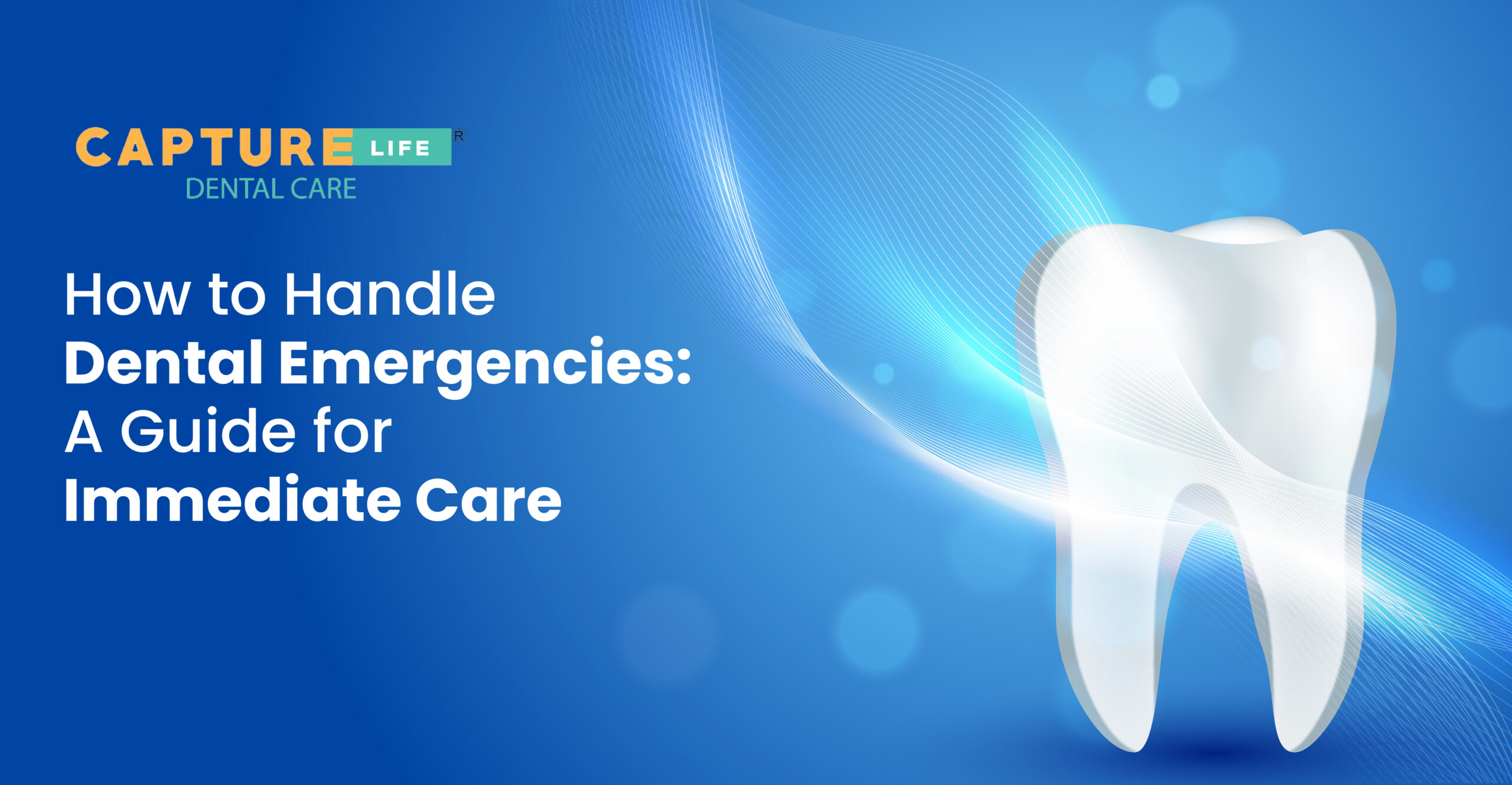
25 Nov What to Do in a Dental Emergency: Expert Advice
How to Handle Dental Emergencies: A Guide for Immediate Care
Are you prepared to handle a dental emergency? At Capture Life Dental Care, we understand that accidents can happen at any time, and it’s essential to know what to do in case of a dental emergency.
In this article, we’ll provide you with a comprehensive guide on how to handle common dental emergencies, so you can get the immediate care you need and avoid further complications.
What Constitutes a Dental Emergency?
A dental emergency is any situation that requires immediate attention from a dentist. This can include:
- Severe toothache or pain
- Broken or knocked-out tooth
- Lost filling or crown
- Abscess or infection
- Bleeding or swelling in the mouth
Step-by-Step Guide to Handling Dental Emergencies
-
Toothache or Pain
- Rinse your mouth with warm salt water to reduce swelling and ease pain.
- Use a cold compress to numb the area and reduce pain.
- Take over-the-counter pain relievers like ibuprofen or acetaminophen, but avoid aspirin as it can thin the blood and worsen bleeding.
- Visit your dentist as soon as possible to determine the cause of the pain and receive proper treatment.
-
Broken or Knocked-Out Tooth
- If your tooth is broken, rinse your mouth with warm salt water and apply a cold compress to reduce swelling.
- If your tooth is knocked out, pick it up by the crown (not the root) and gently rinse it with water. Do not scrub the tooth or remove any attached tissue.
- Try to reinsert the tooth into its socket, but if that’s not possible, store it in a container of milk or saline solution.
- Visit your dentist immediately, as prompt treatment can increase the chances of saving the tooth.
-
Lost Filling or Crown
- If you’ve lost a filling, try to replace it with a temporary filling material like sugar-free gum or dental cement.
- If you’ve lost a crown, try to replace it and visit your dentist as soon as possible to have it re-cemented.
- Avoid eating or drinking until you’ve seen your dentist, as this can cause further damage.
-
Abscess or Infection
- Rinse your mouth with warm salt water to reduce swelling and ease pain.
- Apply a cold compress to reduce swelling and pain.
- Take over-the-counter pain relievers like ibuprofen or acetaminophen, but avoid aspirin as it can thin the blood and worsen bleeding.
- Visit your dentist immediately, as abscesses and infections can lead to serious complications if left untreated.
Preventing Dental Emergencies
While accidents can happen, there are steps you can take to prevent dental emergencies:
- Practice good oral hygiene by brushing and flossing regularly.
- Visit your dentist regularly for check-ups and cleanings.
- Avoid biting or chewing on hard objects like ice or hard candy.
- Wear a mouthguard when participating in sports or activities that can cause mouth injuries.
Conclusion
By following these steps and being prepared for dental emergencies, you can minimize the risk of complications and ensure prompt treatment. Remember, a healthy smile is just a step away. Schedule your appointment today and take the first step towards a healthier, happier you!

